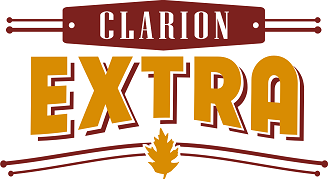By Rodney L. Sherman
Staff writer
KNOX – “We are paying for the sins of the governor and the legislature,” Keystone School District Superintendent Shawn Algoe told school board members Feb. 8. “Nobody wants to raise taxes, but we have to consider it.”
It’s February and it’s time for local school boards to begin planning their districts’ 2016-17 budget.
But it’s hard to plan for next year when this year remains unsettled.
“We’re now at 222 days without a state budget in place (for 2015-16),” Algoe reminded board members. “Two hundred and twenty-two days into the fiscal year and we have no idea what our 2015-16 state revenue will be. So I think it’s safe to say we have no idea what our 2016-17 revenues will be.
“We’re trying to budget by guess work.”
The board meeting opened with the announcement of the birth of a board member’s grandchild.
Algoe apologized for being the bearer of bad news following such a joyful announcement.
“Right now, we can’t consider a (2016-17) budget without a maximum tax increase,” said Algoe. “We don’t know about 15-16 and we don’t know about 16-17. I think the only responsible thing for us to do is consider the maximum increase and then hope we can change it before the deadline.”
That deadline is June 30, when school districts are mandated have to a 2016-17 budget submitted to the state Department of Education.
June 30 is also the deadline for the state legislature to have its budget in place. Keystone met its June 30, 2015, deadline by estimating anticipated state revenue. As Algoe noted, the state is now more 222 days past its budget deadline with no end in sight to the impasse.
In December 2015, in order to comply with Act 1 regulations, the Keystone School Board capped any potential real estate tax increase in 2016 at 3.5 percent or 1.8 mills.
A “mill” of tax is equal to one dollar on each $1,000 of assessed value.
A 1.8-mill increase would raise about $120,026 in additional revenue.
Under Act 1, the board must commit to either capping any real estate tax increase for the upcoming school year to a state-determined “index,” or submitting an early budget with the possibility of a higher tax increase.
Also under state law, the district can only increase property taxes above the index in an emergency, if approved by the state board of education or if approved by a referendum of voters in the district.
“This all because of the mess at the state level,” said Algoe. “I don’t know if people really understand how this is affecting us. There is a tendency to not pay attention to something until affects you personally.
“I hope people understand what a quagmire this thing is.”
The board offered no comment on the matter of a tax increase.
2014-15 surplus
While the board and administrators struggle with two years of budget planning, there was good news stemming from the 2014-15 budget a $236,348 surplus.
The board opted to place that money into a certificate of deposit designated for the district’s capital reserve fund.
Acknowledging a “very good relationship” with Farmers National Bank, the board agreed the money could be withdrawn from the CD without penalty if the funding is needed to continue normal operations should the stalled state budget process continue for an even longer period of time.
District Business Manager Vern Lauffer said the state is releasing funds to school districts for special education, transportation and FICA reimbursements, but basic education funding is still stalled.
- Approved Bruce Weaver (custodial), Pam Huffman (paraprofessional and secretarial), and Wilbur Lewis and Freda Hockenberry (van drivers) as substitutes pending receipt of proper clearances.
- Accepted, with regret, a letter of intent to retire from Barbara Witkowki, instructional technology specialist, effective at the end of the school year.

